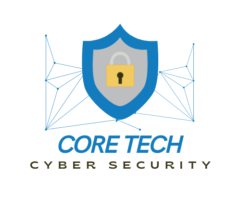Secure hosting is a foundational element of effective cybersecurity. In an era where cyber threats are increasingly sophisticated and prevalent, choosing a secure hosting provider is essential for protecting sensitive data and ensuring the integrity of your online presence. Here’s why secure hosting is critical for cybersecurity:
1. Protection Against Cyber Attacks
Secure hosting provides essential defenses against various types of cyber attacks:
- DDoS Attacks: Distributed Denial of Service (DDoS) attacks can overwhelm your website with traffic, causing downtime. Secure hosting providers often include DDoS protection to mitigate these threats.
- Malware and Viruses: Secure hosting solutions include malware scanning and removal to prevent malicious software from infecting your website.
- Hacking Attempts: Strong security measures, such as firewalls and intrusion detection systems, help protect against unauthorized access and hacking attempts.
2. Data Encryption and Privacy
Data encryption is crucial for safeguarding sensitive information:
- SSL/TLS Certificates: Secure hosting providers offer SSL/TLS certificates to encrypt data transmitted between your website and its visitors, protecting it from eavesdropping and tampering.
- Data Encryption at Rest and in Transit: Secure hosting ensures that your data is encrypted both while being transferred and when stored on the server, preventing unauthorized access.
3. Compliance with Regulations
Many industries are subject to regulatory requirements regarding data protection:
- GDPR, CCPA, PCI-DSS: Secure hosting providers often comply with regulations such as the General Data Protection Regulation (GDPR), California Consumer Privacy Act (CCPA), and Payment Card Industry Data Security Standard (PCI-DSS), ensuring that your hosting environment meets legal and industry standards.
4. Incident Response and Recovery
A secure hosting provider can significantly enhance your incident response and recovery capabilities:
- Regular Backups: Automated and regular backups are essential for data recovery in case of a security breach or data loss.
- Disaster Recovery Plans: Secure hosting providers often include disaster recovery plans to quickly restore services and data in the event of an incident.
5. Proactive Threat Detection
Proactive threat detection helps identify and address potential security issues before they become critical:
- Real-Time Monitoring: Secure hosting providers offer real-time monitoring to detect unusual activities and potential threats.
- Security Updates and Patches: Regular updates and patches to server software and applications protect against known vulnerabilities.
6. Access Control and Authentication
Strong access control mechanisms are vital for preventing unauthorized access:
- Two-Factor Authentication (2FA): Many secure hosting providers support 2FA, adding an extra layer of security during login.
- Secure Password Policies: Providers enforce strong password policies to enhance the security of user accounts and access points.
7. Scalability and Performance
A secure hosting provider ensures that your website remains secure while maintaining performance and scalability:
- Resource Management: Secure hosting solutions manage resources to handle traffic spikes and growth while keeping security measures effective.
- Content Delivery Network (CDN): A CDN not only improves performance but also provides additional layers of security, such as DDoS protection and traffic filtering.
8. Reduced Risk of Reputation Damage
A security breach can severely damage your reputation and erode customer trust:
- Trust and Credibility: Secure hosting helps maintain the trust and credibility of your business by ensuring that your website is protected against breaches and downtime.
- Customer Confidence: Secure hosting instills confidence in your customers, knowing that their data is handled securely.
9. Protection of Intellectual Property
For businesses dealing with proprietary information and intellectual property, secure hosting is crucial:
- Confidentiality: Secure hosting protects sensitive business information and intellectual property from unauthorized access and theft.
- Integrity: Ensures the integrity of your data and website, preventing tampering and unauthorized modifications.
10. Cost-Effectiveness in the Long Run
Investing in secure hosting can be cost-effective in the long run:
- Prevention of Losses: By preventing security breaches and data loss, you avoid the costs associated with recovery, legal fees, and reputational damage.
- Efficient Resource Management: Secure hosting providers often offer efficient resource management, reducing the need for additional investments in security infrastructure.
Conclusion
Secure hosting is a fundamental component of a comprehensive cybersecurity strategy. By choosing a hosting provider with robust security features, proactive threat detection, and compliance with regulatory standards, you protect your website, data, and business from cyber threats. In a world where cyber threats are ever-evolving, investing in secure hosting is not just a precaution but a critical step in safeguarding your online presence and maintaining the trust of your customers.
